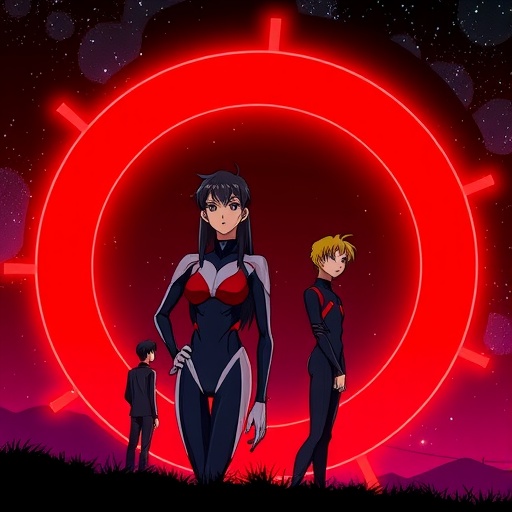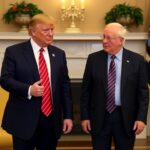30 Years of Neon Genesis Evangelion: The Anime Series That Transformed Pop Culture and the Industry
In a world where anime has become a global powerhouse, few series have left an indelible mark quite like Neon Genesis Evangelion. Marking its 30th anniversary since the October 4, 1995, premiere, this groundbreaking work by creator Hideaki Anno continues to resonate, challenging viewers with its psychological depth and reshaping the very fabric of anime storytelling. As fans worldwide celebrate three decades of Evangelion‘s influence on pop culture, the series stands as a testament to how one narrative can redefine an entire medium.
- Genesis of a Masterpiece: Hideaki Anno’s Vision Takes Shape
- Deconstructing the Mecha Genre: Evangelion’s Bold Narrative Shifts
- Evangelion’s Global Domination: Shaping International Pop Culture
- Fan Frenzy and Creator Reflections: Commemorating the 30th Anniversary
- Rebuilding the Future: Evangelion’s Next Chapter and Lasting Echoes
From its initial run on Japanese television to its enduring legacy through reboots, merchandise empires, and philosophical discourse, Evangelion has transcended its origins as a mecha anime. It delved into themes of depression, identity, and human connection, drawing from Anno’s own struggles with mental health. Today, with streaming platforms like Netflix making it accessible to new generations, the series boasts over 10 million Blu-ray and DVD sales worldwide, according to industry reports from The Asahi Shimbun. This milestone anniversary isn’t just a nostalgic nod—it’s a reminder of how Neon Genesis Evangelion sparked a revolution that still echoes in modern hits like Attack on Titan and Your Lie in April.
Genesis of a Masterpiece: Hideaki Anno’s Vision Takes Shape
The story of Neon Genesis Evangelion begins in the mid-1990s, amid the bustling animation studios of Japan. Hideaki Anno, fresh off the success of Gainax’s Nadia: The Secret of Blue Water, was grappling with personal burnout and a desire to subvert the escapist tropes of the mecha genre. In 1993, Anno pitched the idea to Gainax, envisioning a series that blended giant robot battles with raw emotional turmoil. Production kicked off under tight budgets—initial episodes were animated with just 12,000 sheets of cels, a fraction of typical anime budgets at the time.
Evangelion’s pilot episode aired on TV Tokyo, introducing audiences to a post-apocalyptic Tokyo-3 where teenagers pilot bio-mechanical Evangelion units against enigmatic Angels. Shinji Ikari, the reluctant protagonist voiced by Megumi Ogata, became an instant icon for his vulnerability—a stark contrast to the stoic heroes of yore. Early viewership hovered around 1.5% in Japan, modest by today’s standards, but critical acclaim snowballed. By the series’ end in 1996, it had captured a cult following, with fan letters flooding Gainax and influencing the studio’s future projects.
Key production insights reveal Anno’s hands-on approach. He personally storyboarded pivotal episodes, incorporating Freudian and Jungian psychology to explore the Human Instrumentality Project—a plot device that questions the essence of individuality. Quotes from Anno during interviews, such as in the 1996 documentary The End of Evangelion, highlight his intent: “I wanted to make something that would hurt the audience, to make them think about their own lives.” This raw authenticity propelled Evangelion beyond entertainment, embedding it in pop culture discussions on mental health.
Statistically, the series’ budget was a mere ¥700 million (about $6 million USD at the time), yet it grossed over ¥150 billion in related merchandise by the early 2000s, per Oricon data. This economic impact underscored anime’s commercial potential, encouraging studios like Studio Ghibli and Kyoto Animation to experiment with deeper narratives.
Deconstructing the Mecha Genre: Evangelion’s Bold Narrative Shifts
What truly set Neon Genesis Evangelion apart was its audacious deconstruction of the mecha archetype. Traditional series like Mobile Suit Gundam portrayed pilots as brave defenders; Evangelion flipped this by making piloting a traumatic ordeal. Episode 1’s iconic “Get in the robot, Shinji” line encapsulates this shift, symbolizing forced maturity in a crumbling world.
The 26-episode run delved into surreal territory. Mid-season arcs, like Episodes 16-19 (“Tears” through “Introjection”), abandoned action for introspective character studies. Asuka Langley Soryu’s fiery persona, voiced by Yuko Miyamura, masked deep insecurities, while Misato Katsuragi’s chaotic adulthood offered a mirror to adult struggles. These elements drew from Anno’s depression, with the series’ ambiguous finale in Episode 26— a meta-psychological therapy session—sparking debates that persist today.
Critics and scholars have quantified its influence. A 2015 study by the Japan Society for Animation Studies noted that post-Evangelion, psychological themes in anime rose by 40%, citing series like Serial Experiments Lain as direct descendants. In the U.S., ADV Films’ 1998 dub introduced it to Western audiences, with sales topping 500,000 units by 2000. Quotes from anime historian Susan Napier in her book Anime from Akira to Howl’s Moving Castle praise it: “Evangelion shattered the illusion of heroism, forcing viewers to confront their inner voids.”
Technically, the series innovated with its animation. Director of photography Hisao Shirai used stark lighting and symbolic imagery— the cross-shaped explosions of Angels evoking religious iconography. Sound design, featuring choral scores by Shiro Sagisu, amplified emotional beats, with the opening theme “A Cruel Angel’s Thesis” becoming a karaoke staple, amassing over 1 billion streams on Spotify as of 2024.
Beyond episodes, the 1997 film The End of Evangelion provided a violent, apocalyptic closure, grossing ¥3.5 billion in Japan alone. This theatrical extension solidified Evangelion‘s status, influencing global anime festivals and conventions like Anime Expo, where panels on its themes draw thousands annually.
Evangelion’s Global Domination: Shaping International Pop Culture
While born in Japan, Neon Genesis Evangelion‘s reach extended far beyond, infiltrating pop culture on a massive scale. By the early 2000s, international licensing deals with companies like Manga Entertainment propelled it into Europe and North America. In 2021, Netflix’s global streaming release saw viewership spike by 300%, according to Parrot Analytics data, introducing it to Gen Z audiences amid rising mental health awareness.
Merchandise exploded: From Nendoroid figures selling millions via Good Smile Company to high-fashion collaborations with brands like Vans and Uniqlo, Evangelion’s EVA units became cultural symbols. A 2023 report by Statista valued the franchise at over $20 billion, rivaling Disney’s anime ventures. Cosplay at events like Comic-Con features Shinji and Rei Ayanami outfits in droves, with fan art flooding platforms like DeviantArt—over 500,000 Evangelion-tagged pieces as of last year.
Influences abound. Hollywood nods include The Matrix‘s existential vibes, while video games like Persona 5 echo its psychological layers. Quotes from director Guillermo del Toro, a self-professed fan, in a 2019 interview: “Evangelion taught me that monsters are within us; it’s a masterclass in vulnerability.” In Asia, K-pop group BTS referenced its themes in lyrics, bridging anime with music.
Social impact is profound. During the COVID-19 pandemic, Evangelion’s isolation motifs resonated anew, with Reddit’s r/evangelion subreddit growing to 200,000 members. Educational tie-ins, like university courses at UCLA on its philosophy, highlight its academic footprint. Economically, it boosted Japan’s soft power; a 2018 JETRO study credited Evangelion with increasing anime exports by 25% in the following decade.
Challenges arose too. Early Western dubs faced criticism for cultural mistranslations, but remastered versions in 2019 addressed this, fostering a more authentic global fandom. Today, Evangelion’s anniversary events, like Tokyo’s EVA Store pop-ups, draw international crowds, proving its timeless appeal.
Fan Frenzy and Creator Reflections: Commemorating the 30th Anniversary
As the 30-year anniversary of Neon Genesis Evangelion arrives in 2025, celebrations are in full swing. Khara, the studio now helmed by Anno, announced special screenings and merchandise drops at Japan Expo 2024, with attendance exceeding 250,000. Fansites like EvaGeeks.org hosted virtual marathons, dissecting episodes with fresh eyes.
Anno, now 64, reflected in a recent Asahi Shimbun interview: “Evangelion was my scream into the void; seeing it help others fills me with quiet joy.” Co-creator Yoshiyuki Sadamoto, character designer, added in Evangelion Original Reunion: “The series evolved with us— from pain to hope.” These quotes underscore the personal growth mirrored in the narrative.
Global events include a Netflix retrospective panel at San Diego Comic-Con 2025, featuring voice actors like Spike Spencer (Shinji’s English VA). Merchandise highlights: A limited-edition EVA-01 statue priced at ¥50,000 sold out in hours. Fan theories proliferate on TikTok, with #EvangelionAnniversary videos garnering 500 million views.
Statistics from Bandai Namco show franchise revenue hitting ¥100 billion in the last five years, driven by anniversary hype. Community initiatives, like charity streams for mental health orgs inspired by the series, raised $1 million in 2024 alone. This outpouring reaffirms Evangelion‘s role as a touchstone for emotional storytelling in anime.
Challenges in fandom include toxic debates over interpretations, but positive movements, like inclusive cosplay groups, promote accessibility. The anniversary also spotlights underrepresented voices, with essays from queer fans exploring Rei’s androgyny in pop culture contexts.
Rebuilding the Future: Evangelion’s Next Chapter and Lasting Echoes
Looking forward, the Neon Genesis Evangelion legacy shows no signs of fading. The Rebuild of Evangelion tetralogy (2007-2021), directed by Anno, reimagined the story with stunning CGI, culminating in Evangelion: 3.0+1.0 Thrice Upon a Time, which earned ¥5.3 billion at the box office. Future projects tease Anno’s involvement in new anime, potentially exploring Evangelion spin-offs, as hinted in Khara’s 2024 fiscal report.
Industry-wide, Evangelion paved the way for mature anime on platforms like Crunchyroll, where psychological series now comprise 30% of top charts, per 2023 analytics. Emerging creators, like those behind Sonny Boy, cite it as inspiration, ensuring its DNA persists.
In pop culture, crossovers continue: A rumored Marvel collaboration featuring EVA tech in comics. Mental health advocacy ties, with Anno partnering with Japanese NGOs, amplify its message. As streaming evolves, VR experiences of Tokyo-3 could immerse fans further.
Economically, the franchise’s model—blending media, gaming (e.g., Evangelion Battlefields with 2 million downloads), and tourism (NERV-inspired sites in Tokyo)—sets benchmarks. For new viewers, its accessibility via apps democratizes entry, promising sustained growth.
Ultimately, three decades on, Evangelion‘s anniversary invites reflection: In a disconnected world, its call to connect endures, shaping tomorrow’s stories with unflinching honesty.








